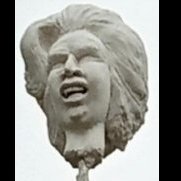New bodies not needed to steer country through crises: CDC
-
Recently Browsing 0 members
- No registered users viewing this page.
-
Topics
-
Popular Contributors
-
Latest posts...
-
139
How did your dad influence your life
Boyfriends. You know, where you date people trying to find that right one. Not exchanges for money so that might have confused you some. -
139
How did your dad influence your life
I knew some of the things my dad did were wrong, so I did otherwise. Yes, they are our first role models, and much of our behavior mimics theirs, especially towards our children, but again, you can choose to do different. I've been reading constantly since my first marriage went under, trying to do my part in a relationship and raising kids. Picking the wrong people, especially to have children with, doesn't help your cause. Treating others good doesn't always get you the same treatment back. -
139
How did your dad influence your life
Look up stats for everywhere. They might surprise you. A higher population always has more crimes. Girls in Thailand, up to 70% , are sexually assaulted in school by the time they are 17. In the US, the figure is 12%. -
82
Is covid a hoax
In a strange way I actually partly agree with that statement. But it's only for the Covid-19 jabbed/boosted that this 'new Covid variant' is a very real danger. By taking the mRNA jabs they have screwed up their immune system, and - apart from the longer term harms those shots are provoking - the multiple jabbed have now little protection against any infection they encounter.- 1
-

-
23
UK’s Standing on LGBT+ Rights hits its lowest rank ever in 2025
And that's relevant to this thread because... why? -
9
Changing from Marriage Extension visa to Retirement Extension visa
Changing the reason for an extension of stay from one based on marriage to one based on retirement is a fairly straightforward process at all immigration offices. Obviously you need the 800k in a Thai bank account in your name only seasoned for 2 months before you apply for the chains of reason and new extension Also realize when you change the reason for an extension the new extension starts the day you apply What that means is, if you go a month early you lose that month of your previous extension. The new extension is not added on to your expiration date that you have now, instead it starts the day you apply for it.- 1
-

-
-
Popular in The Pub
-




.thumb.jpeg.d2d19a66404642fd9ff62d6262fd153e.jpeg)




Recommended Posts
Create an account or sign in to comment
You need to be a member in order to leave a comment
Create an account
Sign up for a new account in our community. It's easy!
Register a new accountSign in
Already have an account? Sign in here.
Sign In Now